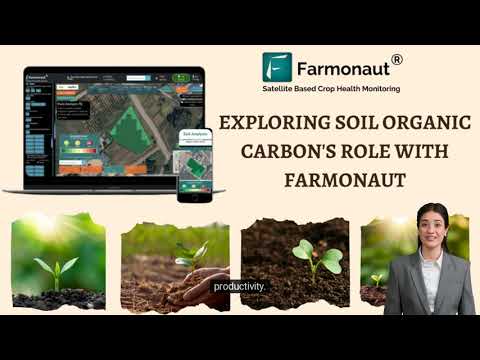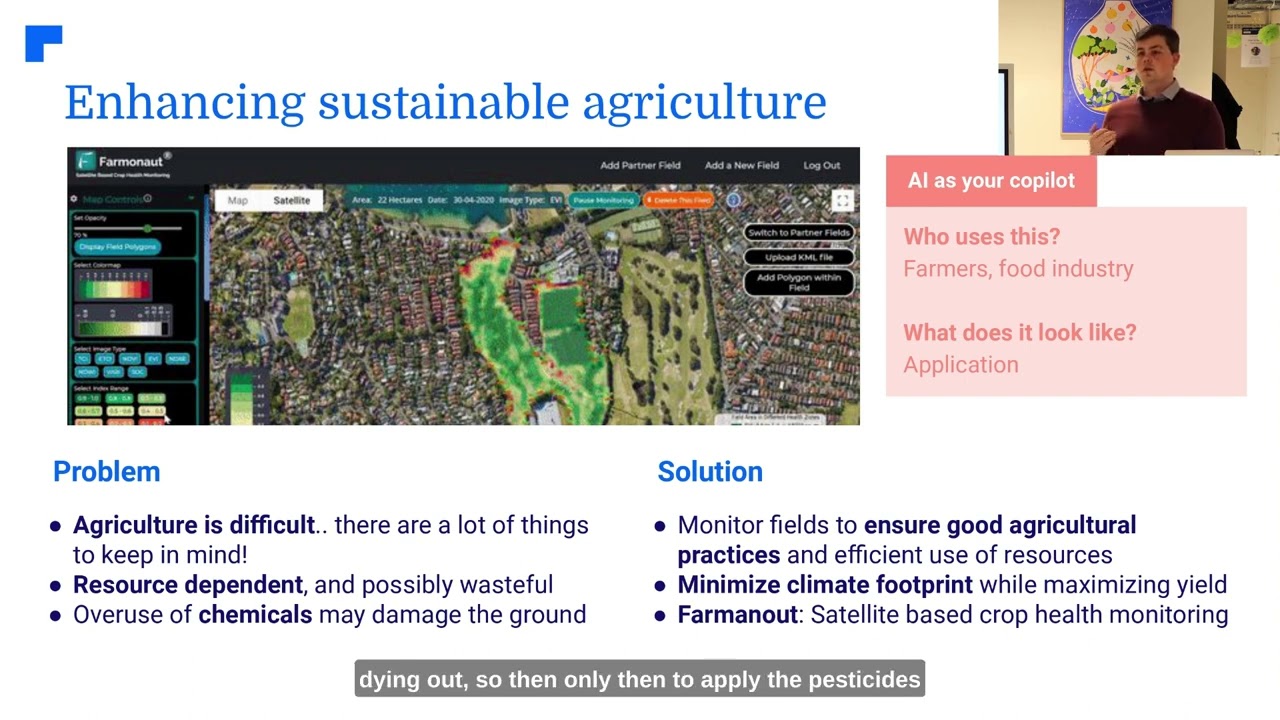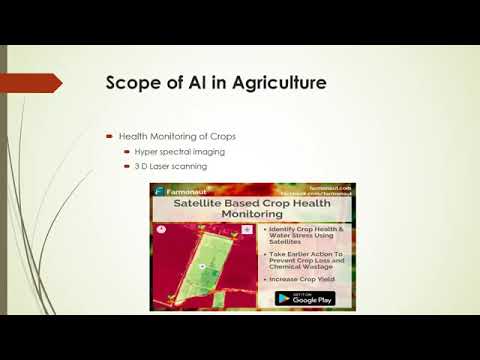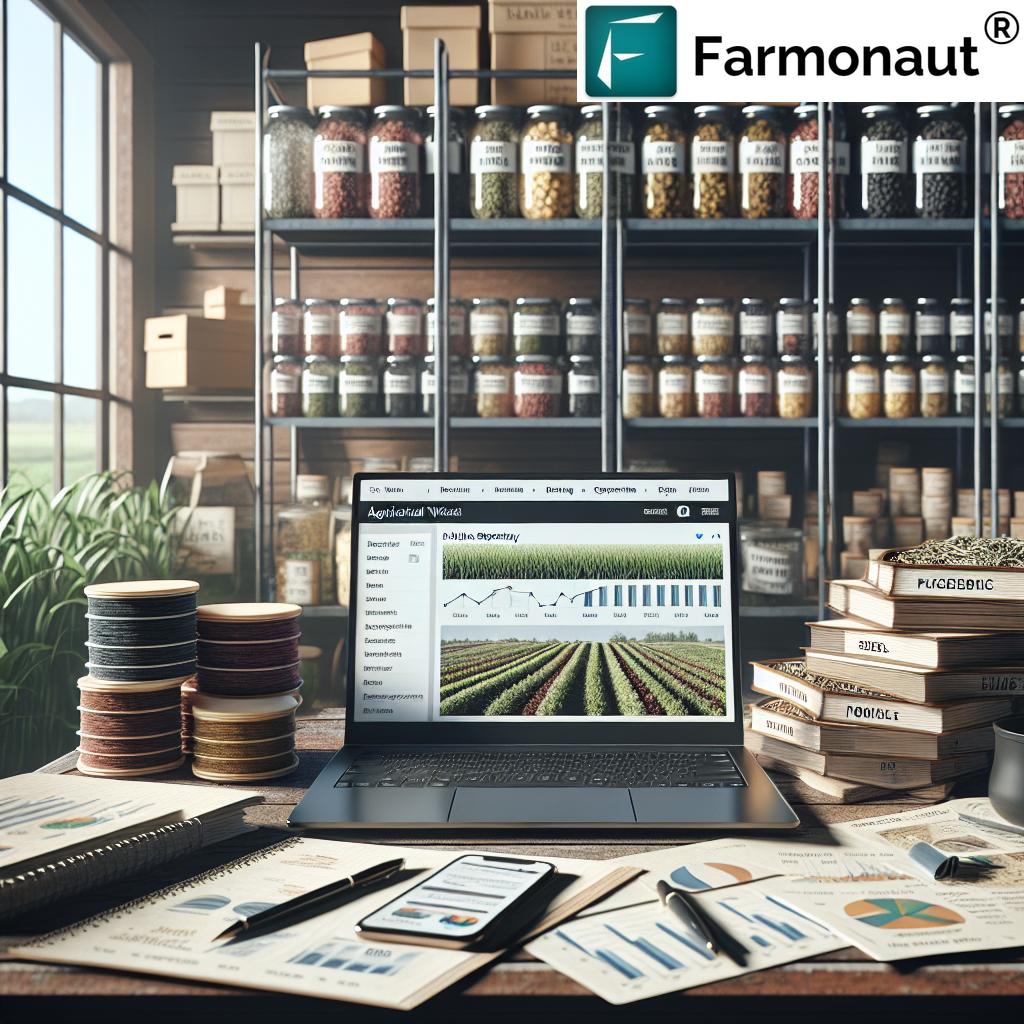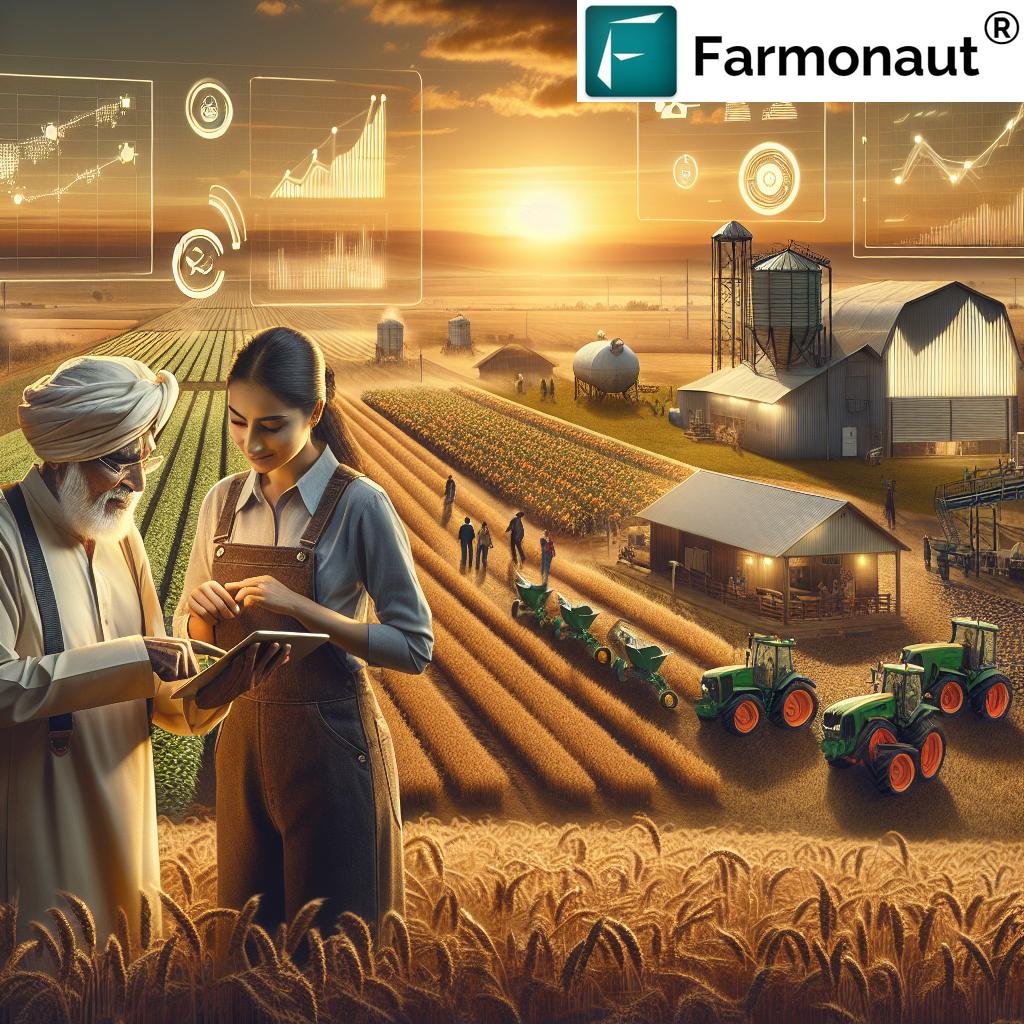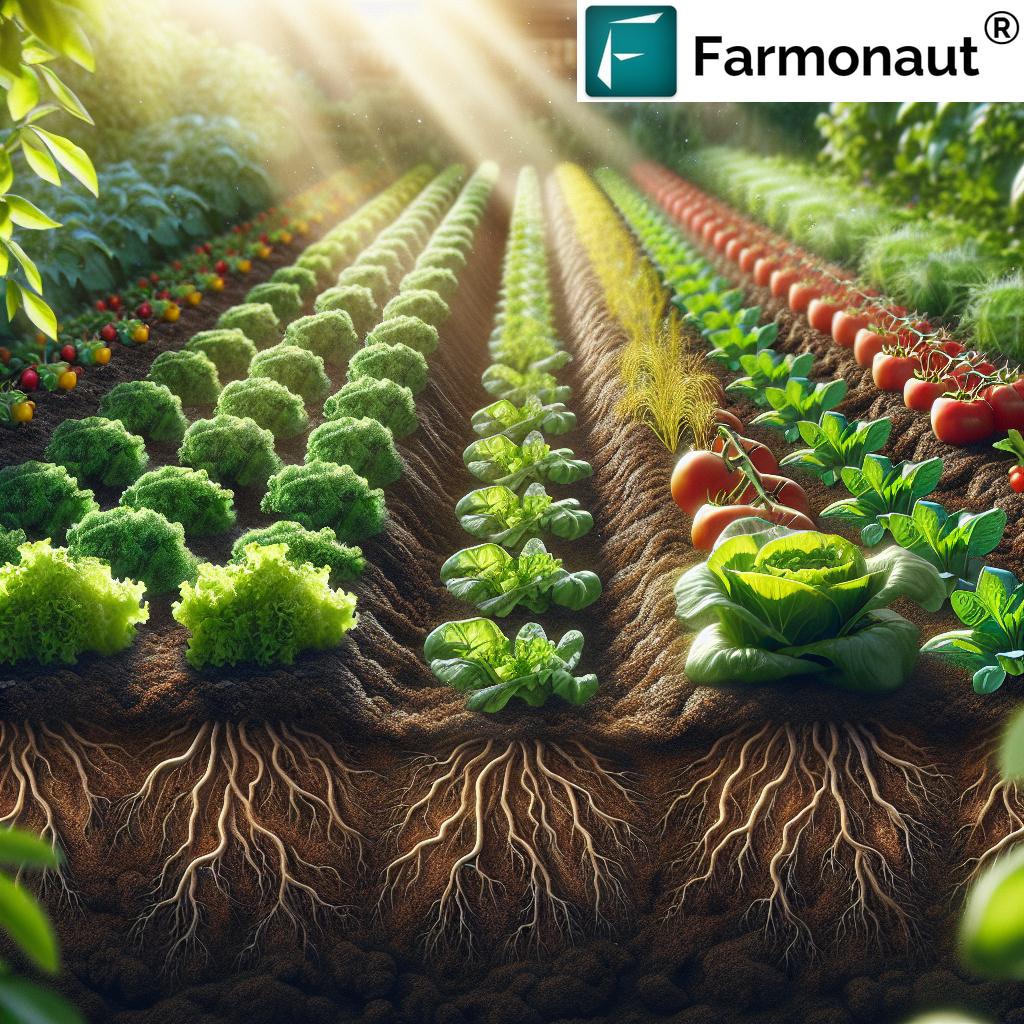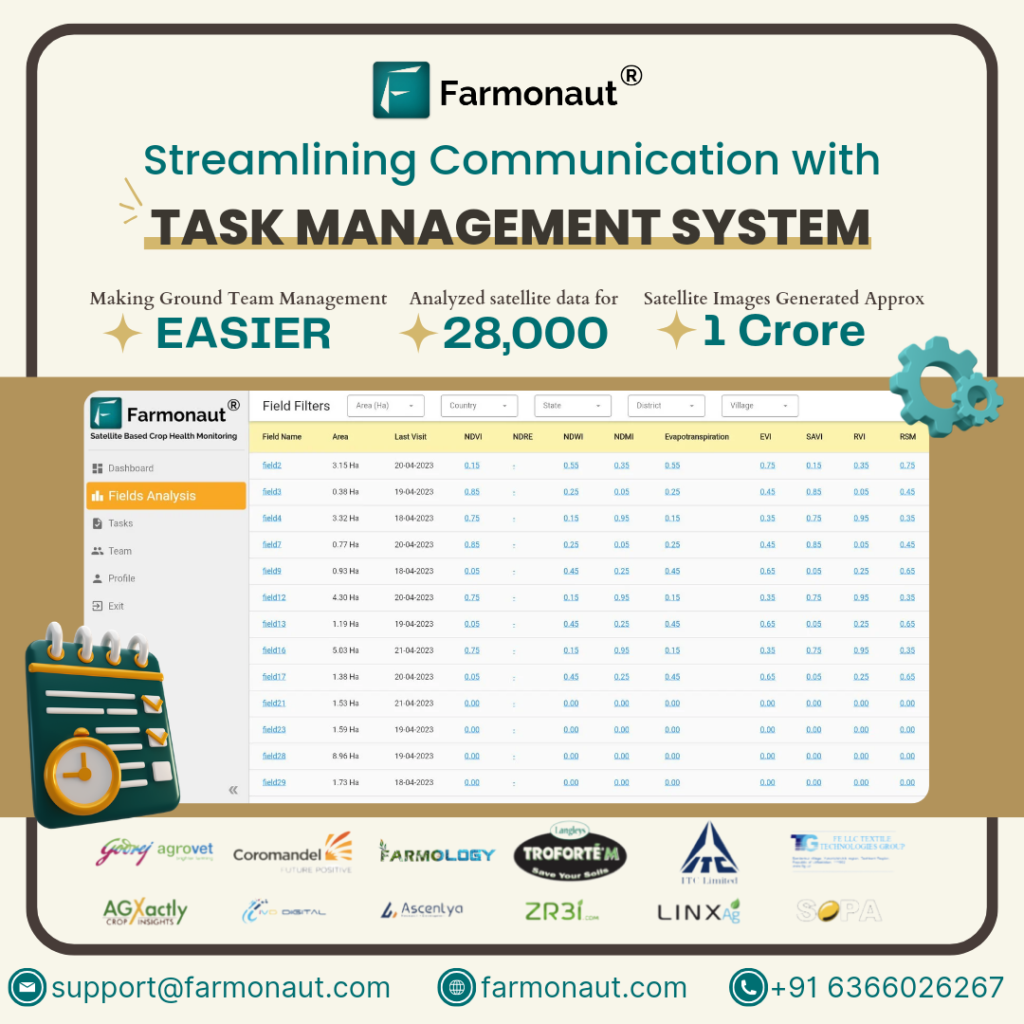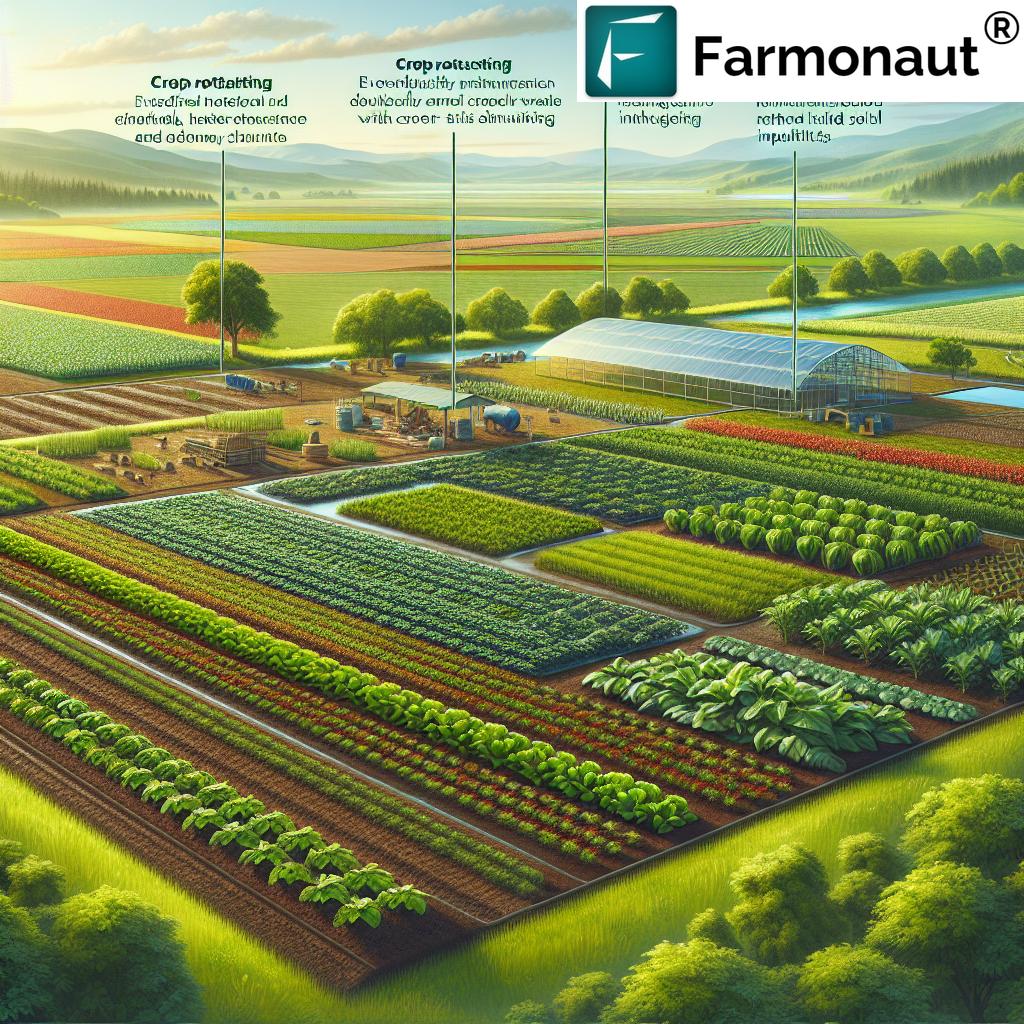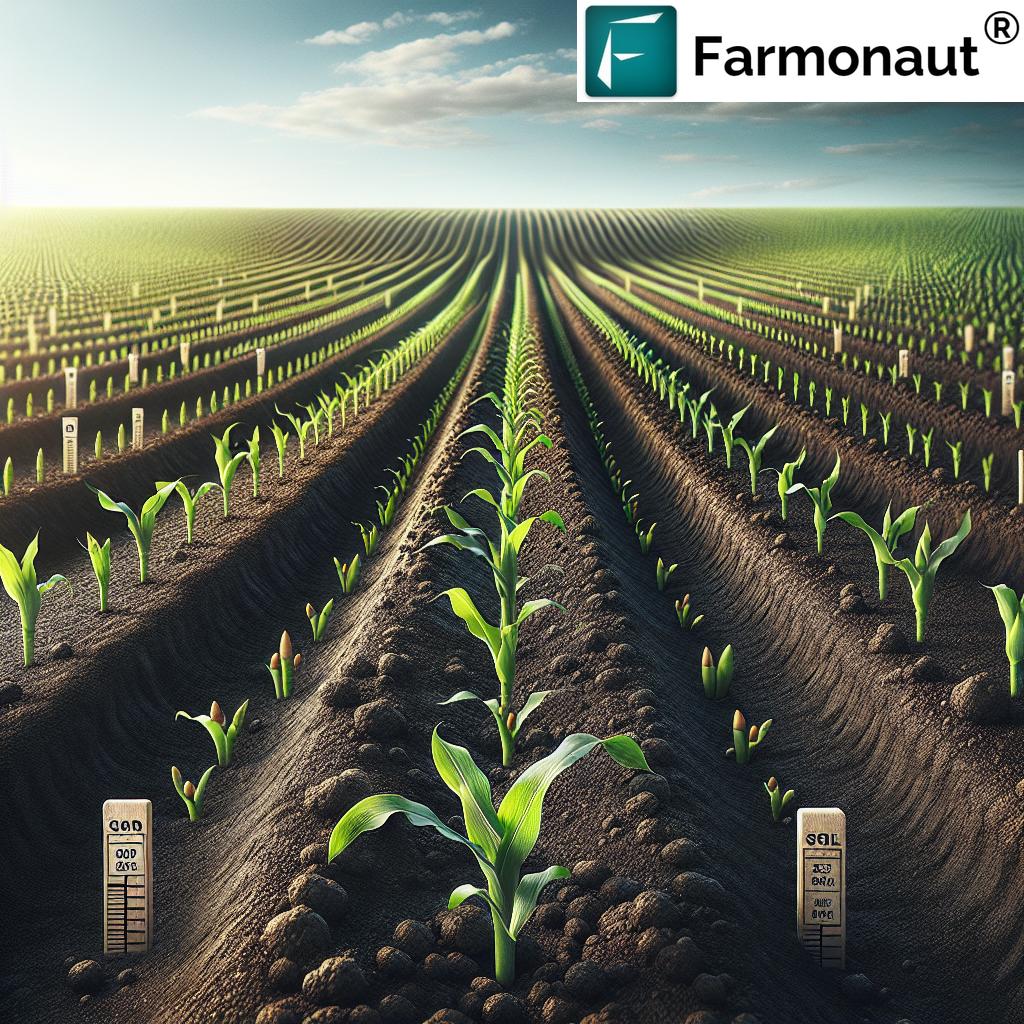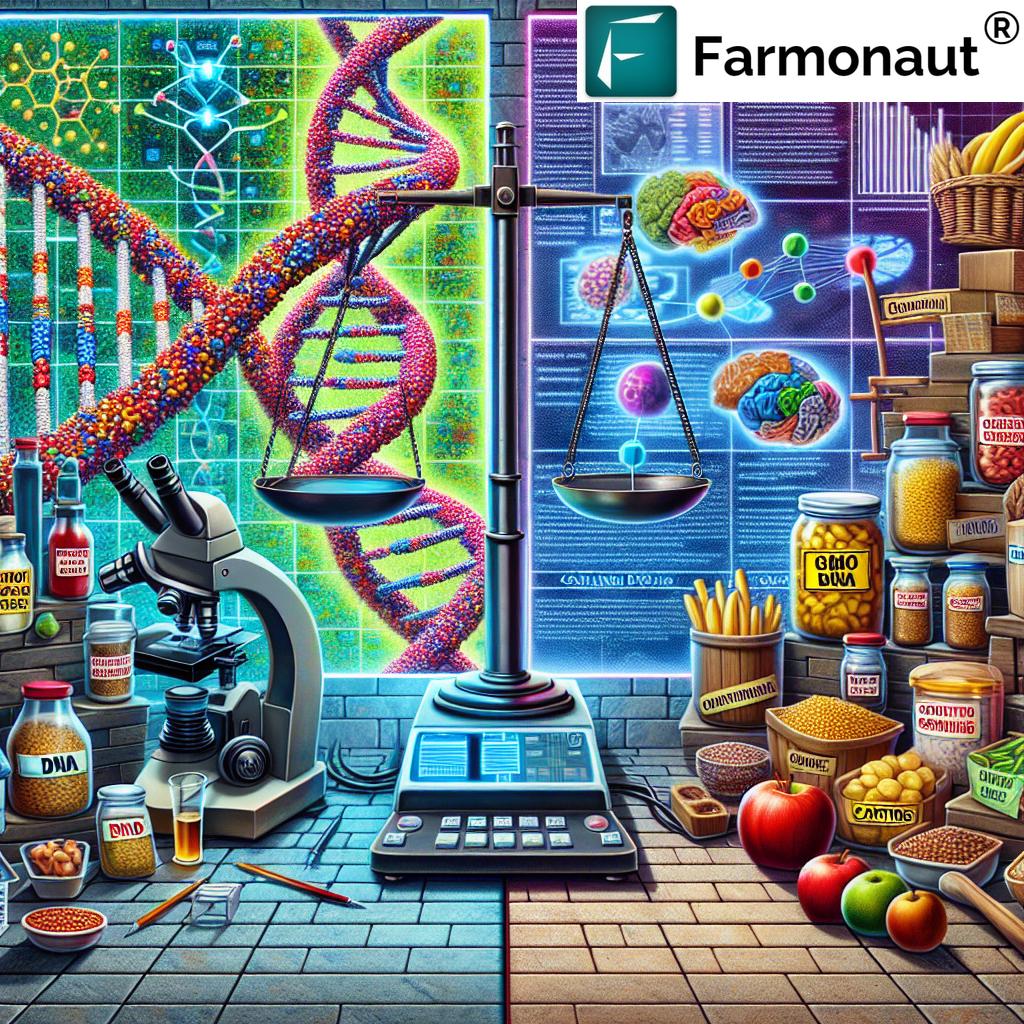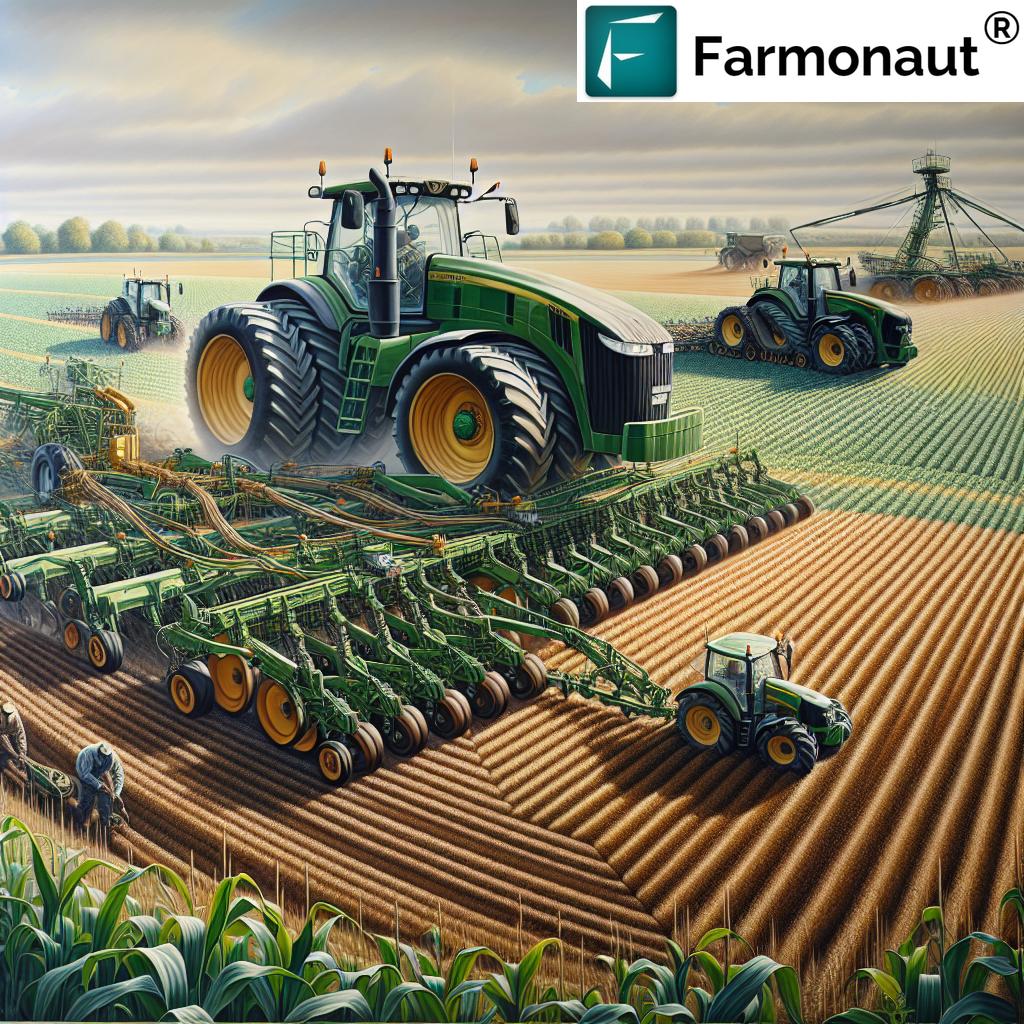7 Shocking Sustainable Agriculture Solutions Revealed!
“Over 70% of global freshwater is used for agriculture—sustainable practices can reduce this by up to 50%.”
- Introduction to Sustainable Agriculture
- Key Principles of Sustainable Agriculture
- Comparison Table of 7 Sustainable Agriculture Solutions
- 7 Shocking Sustainable Agriculture Solutions Revealed
- Technological Innovations Empowering Sustainable Agriculture
- Farmonaut: Smart Agricultural Solutions for Sustainability
- Challenges in Adopting Sustainable Agricultural Practices
- Global Initiatives & The Future of Sustainable Agriculture
- FAQ About Sustainable Agriculture
- Farmonaut Subscriptions
Introduction to Sustainable Agriculture
As global food demands rise and natural resources dwindle, sustainable agriculture emerges as our most promising approach to feeding the world—without sacrificing our planet’s future. Unlike traditional farming, which often depletes soil, pollutes water, and increases greenhouse gas emissions, sustainable agriculture integrates cutting-edge technology, clever management strategies, and centuries-old wisdom to create thriving food systems.
In this blog, we’ll dive deep into seven shocking solutions that are transforming how we manage soil health, water conservation, biodiversity, energy efficiency, pest control, and crop productivity. We’ll show how these innovations boost crop yields, reduce costs, and make agriculture both environmentally and economically viable. From biointensive farming to AI-powered crop management, these sustainable farming practices promise a future where farmers, consumers, and our ecosystem all win.
Let’s explore how modern farming meets the needs of today without compromising tomorrow!
Key Principles of Sustainable Agriculture
Sustainable agriculture is a holistic approach that focuses on long-term productivity, ecosystem health, and social responsibility. Here’s how foundational principles shape this future-forward approach:
-
1. Soil Health Management
The core of sustainable success lies in soil health management. Practices like crop rotation, reduced tillage, and using organic fertilizers help maintain soil fertility, structure, and biodiversity—delivering higher, healthier yields.
-
2. Water Conservation in Agriculture
Water is life in agriculture, but efficient management is vital. Methods like drip irrigation and rainwater harvesting provide crops the right moisture, helping us save precious water and minimize waste.
-
3. Biodiversity in Farming Systems
Integrating diverse plants and animals into fields supports ecosystem balance, natural pest and disease control, and long-term resilience.
-
4. Integrated Pest Management (IPM)
Combining biological, cultural, physical, and chemical tools reduces reliance on hazardous pesticides—minimizing impact on our environment and health.
-
5. Energy Efficiency in Agriculture
Utilizing renewable sources and optimizing energy use cut greenhouse gas emissions and operational costs, paving the way for a cleaner, more efficient farming future.
Comparison Table of 7 Sustainable Agriculture Solutions
| Solution Name | Key Practice/Description | Est. Increase in Crop Yield (%) | Est. Water Usage Reduction (%) | Impact on Soil Health | Eco-Friendliness (1–5) |
Geographic Applicability |
|---|---|---|---|---|---|---|
| Soil Health Management | Crop rotation, reduced tillage, organic fertilizers | 10–20% | Up to 10% | High | 5 | Global |
| Water Conservation | Drip irrigation, rainwater harvesting | 5–15% | 20–50% | Medium–High | 4 | Global, Arid, Semi-arid |
| Agroforestry | Integration of trees/shrubs into farms | 10–30% | 10–20% | High | 5 | Tropical, Subtropical |
| Vertical Farming | Indoor, layered crop production | 20–40% | Up to 90% | Medium | 4 | Urban, Global |
| Hydroponics & Aquaponics | Soilless, water-based farming, fish synergy | Up to 25% | Up to 90% | Medium | 4 | Urban, Peri-urban |
| Biointensive Agriculture | Deep soil prep, close planting, composting | 20–100% | 10–50% | High | 4 | Small plots, Global |
| Agrivoltaics | Solar panels above crops for dual use | 10–15% | Up to 20% | Medium | 5 | Temperate, Sunny Regions |
7 Shocking Sustainable Agriculture Solutions Revealed
Let’s unpack each sustainable agriculture solution, highlighting the practices, benefits, and real-world results behind their growing adoption.
1. Soil Health Management: The Foundation of Productive, Sustainable Farms
Healthy soil is the bedrock of sustainable agriculture. Our focus on soil health management involves using crop rotation, reduced tillage, and organic fertilizers to maintain and improve soil fertility, texture, and biodiversity.
- Crop Rotation interrupts pest and disease cycles, replenishes vital nutrients, and supports biodiversity in farming systems.
- Reduced Tillage preserves soil structure, retains vital organic carbon, and reduces erosion.
- Organic Fertilizers supply nutrients naturally, minimizing environmental impact.
Watch: Unlocking Soil Organic Carbon: The Secret to Sustainable Farming with Farmonaut (above)
2. Water Conservation in Agriculture: Revolutionizing Moisture Management
With over 70% of global freshwater used for agriculture, efficient water management is critical. We employ drip irrigation and rainwater harvesting to deliver precise moisture, reduce waste, and safeguard the water cycle.
- Drip Irrigation: Provides targeted water, minimizing evaporation and runoff.
- Rainwater Harvesting: Collects and stores seasonal rainfall for use during dry spells—boosting water conservation in agriculture.
“Healthy soil from sustainable farming can increase crop yields by 20% compared to conventional methods.”
3. Agroforestry: Integrating Biodiversity and Economic Resilience
Agroforestry benefits are vast—by blending trees, shrubs, and crops within agricultural landscapes, we elevate soil fertility, moderate microclimates, and diversify farmer incomes through products such as fruits, nuts, and timber.
- Improves soil structure and prevents erosion
- Supports birds and beneficial insects, enhancing ecosystem balance
- Enables farmers to tap into new income streams
4. Vertical Farming: Efficient Urban Agriculture
By stacking crops in layers within controlled environments, vertical farming amplifies output and energy efficiency in agriculture. Urban growers can now harvest year-round, using less land and minimizing the transport footprint to local markets.
- Reduces land demand by up to 90%
- Cuts transport-related emissions as food grows closer to consumers
- Works synergistically with Farmonaut’s Carbon Footprinting Tools to track environmental benefits
5. Hydroponics & Aquaponics: Soil-Free, Water-Smart Food Production
Hydroponics grows plants in nutrient-rich water, without soil, reducing water usage by up to 90%. Aquaponics goes further—integrating fish and plant systems for mutual benefit, recycling nutrients, and creating a closed, efficient ecosystem.
- Delivers precise nutrition, optimizing crop yields
- Prevents soil-borne pests and diseases
- Ideal for urban or peri-urban areas with scarce arable land
Watch: How Farmonaut’s Satellite Technology is Revolutionizing Land Use in Agriculture
6. Biointensive Agriculture: Maximizing Output, Minimizing Inputs
Biointensive agriculture is about achieving the most yield from the smallest space. By focusing on deep soil preparation, composting, and dense planting, we maximize resource efficiency and minimize environmental footprint—a sustainable solution for smallholders.
- Increases yields up to 100% compared to traditional methods
- Great for community or urban gardens—improving food security
- Couples well with Farmonaut’s Crop Plantation and Forest Advisory for real-time insights and planting guidance
7. Agrivoltaics: Harnessing Solar Energy for Crops and Power
Agrivoltaics places solar panels above agricultural fields, creating dual-use landscapes where plants enjoy partial shade (lowering evaporation and heat stress) while farmers generate renewable electricity.
- Reduces water usage by up to 20% due to cooler, shaded microclimates
- Delivers extra farm income through solar power production
- Suited for sunny, open regions in both developing and developed countries
Technological Innovations Empowering Sustainable Agriculture
The march toward sustainability is powered by game-changing technologies. Here’s how innovations like AI in agriculture, IoT, and blockchain are turning ambitious goals into on-the-ground reality.
Watch: Farmonaut Covered By Radix AI: Leveraging Remote Sensing and Machine Learning for a Greener Future
Internet of Things (IoT) in Agriculture
IoT systems monitor soil moisture, weather, and crop health in real time, making data-driven decisions easier. This enhances efficiency, supports precision irrigation, and helps reduce waste.
- Farmonaut’s API offers satellite and IoT integration—access it here
- For seamless integration, explore Farmonaut’s API Developer Docs
AI in Agriculture
AI analyzes satellite and sensor data to predict yields, detect pest/disease outbreaks, and optimize planting schedules—improving both productivity and sustainability.
- Check out Farmonaut’s Large-Scale Farm Management Platform, leveraging AI for organized, data-informed operations.
Blockchain-Based Product Traceability
Traceability ensures every stage—from planting to market—is transparent and fraud-resistant, meeting growing demands for ethical, sustainable food.
- Learn about Farmonaut’s Product Traceability Solutions—boosting supply chain trust and compliance.
Carbon Footprinting & Fleet Management
Track farm carbon emissions and make more sustainable choices by leveraging Farmonaut’s Carbon Footprinting Solution.
Fleet Management Tools allow agribusinesses to optimize logistics, reduce operational costs, and ensure responsibly managed supply chains.
Watch: The Role of Artificial Intelligence in Agriculture – Farmonaut | Agritecture | Joyce Hunter
Farmonaut: Smart Agricultural Solutions for Sustainability
As sustainable agriculture evolves, our need for accessible, powerful technology grows just as fast. Farmonaut provides precision, affordability, and actionable insights for farmers, agribusinesses, governments, and corporations globally. Here’s how Farmonaut aligns with the sustainability revolution:
- Satellite-Based Crop Health Monitoring: Multispectral images track soil moisture, crop health (NDVI), and more—enabling smarter use of irrigation, fertilizers, and pest management tools to optimize yields and conserve resources.
- Jeevn AI Advisory System: This real-time AI advisory tool delivers custom weather, crop, and resource insights, increasing efficiency and reducing resource waste.
- Blockchain Product Traceability: End-to-end transparency for ethically and sustainably grown products.
- Fleet & Resource Management: Tracking equipment, vehicles, and logistics helps lower operational costs while ensuring environmental compliance.
- Carbon Footprinting: Real-time emissions tracking helps farmers meet sustainability and regulatory standards.
Farmonaut serves individual farmers (small to large), agribusinesses, government programs, NGOs, and financial institutions, helping all stakeholders transition to data-driven, eco-friendly agricultural systems at scale.
Challenges in Adopting Sustainable Agricultural Practices
Transitioning to sustainable agriculture is not without hurdles. Here’s how we can overcome the major challenges:
- Initial Investment Costs: Technologies like IoT, AI, and satellite monitoring require upfront spending. However, the long-term savings and sustainability gains—such as reduced water and fertilizer use, improved yields, and lower costs—offset these investments quickly.
-
Knowledge Gaps: Many farmers lack access to the training and advice on sustainable farming practices, especially in remote areas.
Solution: Leveraging digital tools like Farmonaut’s data-driven apps and Jeevn AI advisory delivers scientific guidance directly to farmers’ phones. -
Resistance to Change: Shifting from traditional to sustainable methods brings uncertainty.
Solution: Governments, research institutes, and agribusinesses must promote the proven economic and environmental benefits—offering policy support and financial incentives. - Research & Development Needs: Continued investment in scientific research, technology adaptation, and field trials is essential to refining practices for diverse geographies, crops, and climates.
Policy Support and Financing
Sustainable agriculture adoption is accelerated by subsidies, grants, and favorable policies. Partnerships with financial institutions—for instance, Farmonaut’s Crop Loan and Insurance Verification—reduce fraud, streamline approval, and make loans more accessible for green farming initiatives.
Farmers require continuous education and training—digital tools, field workshops, and demonstration farms are all key ways to build sustainable knowledge and motivation.
Global Initiatives & The Future of Sustainable Agriculture
Globally, forward-thinking organizations are backing sustainable agriculture to solve climate, food security, and environmental crises simultaneously.
- The World Bank has called for a “drastic reorientation” of agrifood systems to achieve neutrality by 2050, focusing on investments in sustainable farming practices and emission reductions.
- According to the UN’s Food Systems Chief, harnessing science and technology is critical for making global farming resilient in the face of climate change.
- Even recent recognitions, like a $500,000 prize for Brazilian innovations in chemical-free food production, showcase international momentum for change.
The future is about integrating ancient wisdom (like crop rotations) with frontier technologies (AI, IoT, blockchain). This sustainable agriculture approach ensures we meet modern food demands while preserving natural resources, biodiversity, and social equity for generations.
FAQ About Sustainable Agriculture
- Q: What is sustainable agriculture?
A: It’s an approach to farming that balances current food production needs with future generations’ ability to meet theirs—by protecting soil health, water, and biodiversity, while remaining economically and socially viable. - Q: What are the most important sustainable farming practices?
A: Key practices include crop rotation, reduced tillage, organic fertilizers, integrated pest management, water conservation through efficient irrigation, biodiversity enhancement, and renewable energy use. - Q: How does AI in agriculture improve sustainability?
A: AI crunches data (weather, satellite images, soil/moisture sensors) to deliver targeted advice, optimize planting/harvesting schedules, predict pest/disease outbreaks, and minimize inputs, boosting both productivity and sustainability. - Q: Does sustainable agriculture cost more?
A: While some practices and technologies require initial investment, the cost savings from reduced inputs, higher yields, and access to green finance/policies often make them more profitable in the long term. - Q: How does Farmonaut support sustainable agriculture?
A: Farmonaut provides satellite-based monitoring, AI-powered advisory, blockchain traceability, and tools for carbon tracking and resource management—making advanced, sustainable farming accessible and affordable worldwide. - Q: What is agrivoltaics?
A: Agrivoltaics combines solar panel installations above crops, creating microclimates that reduce plant water stress and generate additional farm income through renewable energy. - Q: Where can I learn more about Farmonaut technology?
A: Explore Farmonaut’s official website for detailed product pages, or try out the platform via the links above!
Farmonaut Subscriptions – Affordable, Scalable Precision Agriculture
Ready to transform your farm with advanced, sustainable solutions? Farmonaut offers flexible subscription models for individual farmers, cooperatives, agribusinesses, and organizations.
Conclusion: A Greener Future Through Sustainable Agriculture
By embracing the seven shocking sustainable agriculture solutions highlighted here, we empower farmers, communities, and entire nations to grow abundant, nutritious food while preserving our planet’s resources. Through intelligent soil health management, water conservation in agriculture, biodiversity in farming systems, energy efficiency, integrated pest management, and advanced technology, we unlock higher yields, reduced costs, and a resilient rural economy.
Farmonaut is committed to making precision agriculture affordable and accessible, so every farmer can join the movement—combining the best traditions with data-driven innovation for a truly sustainable future.
Ready to start your sustainable agriculture journey? Download our app for instant access, explore our API for custom integrations, or check out our scalable subscription plans above to see how Farmonaut fits your needs!





